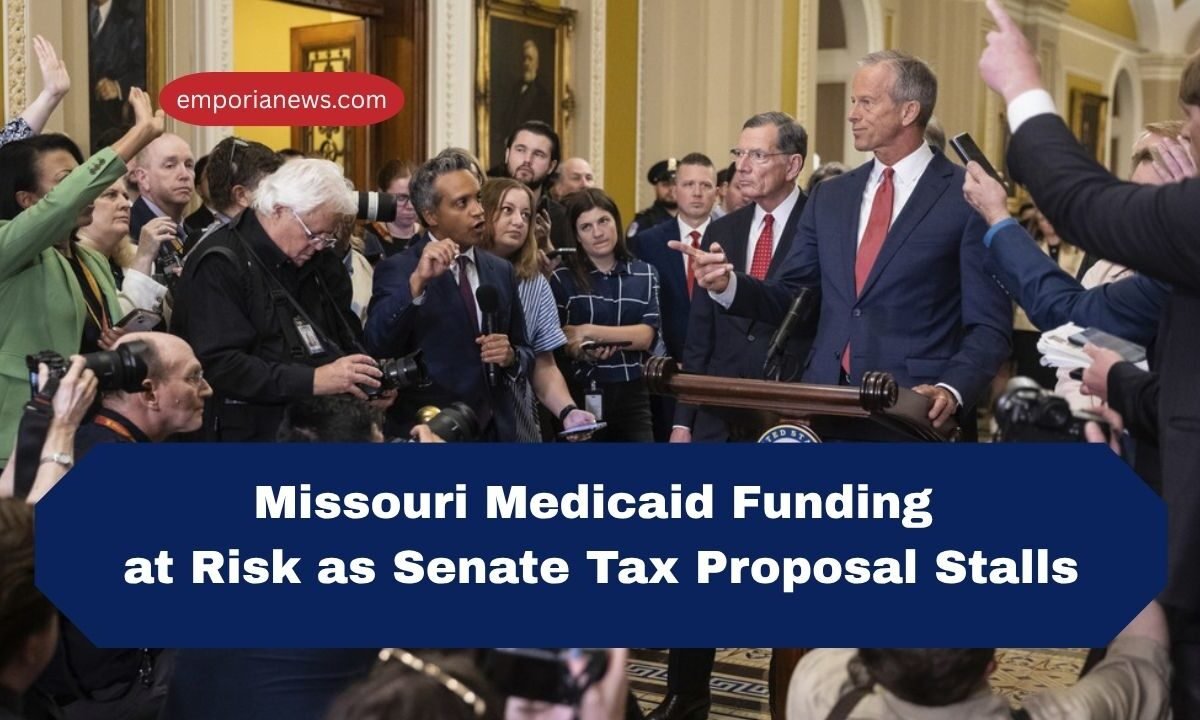A controversial U.S. Senate tax proposal that sparked concern among Missouri healthcare leaders is facing significant hurdles.
The measure aimed to cap medical provider taxes—used by 49 states including Missouri to fund Medicaid—at 3.5%, even though Missouri’s rate has reached nearly 6% in the past.
However, Senate Parliamentarian Elizabeth MacDonough ruled the proposal violates the Byrd Rule, meaning it would require 60 votes to pass, making it highly unlikely with only 53 Republican votes in the Senate.
Potential Cuts Could Cost Missouri Hospitals Millions
If enacted, the cap could result in a loss of hundreds of millions of dollars for Missouri’s Medicaid program.
Craig Thompson, CEO of Golden Valley Memorial Healthcare in Clinton, warned that rural hospitals like his would be hit hardest, reducing already insufficient payments for Medicaid services.
“We’re already paid less than what it costs to provide care. This would make things even worse,” said Thompson.
GOP Divided on Medicaid Tax Cap Proposal
Some Republican lawmakers, including Sen. Josh Hawley, have expressed skepticism about the proposal, fearing it could jeopardize rural healthcare.
Hawley previously stated the plan “needed work.” Meanwhile, Sen. Eric Schmitt criticized the way provider taxes are handled, recalling lawmakers referring to them as “free money.”
Critics Say Plan Targets Medicaid Expansion States
Edwin Park, a Georgetown public policy professor, pointed out that the proposed cap would only apply to states that expanded Medicaid under the Affordable Care Act, like Missouri.
The 10 non-expansion states would still be allowed to maintain provider tax rates up to 6%.
This has led some to believe the cap is intended to undermine Medicaid expansion by limiting state funding mechanisms.
Missouri’s Medicaid Expansion Is Constitutionally Protected
Despite federal efforts, Missouri cannot easily reverse its Medicaid expansion, which was constitutionally enshrined by voters in 2020. Repealing it would require another statewide vote.
Park emphasized the importance of provider taxes in funding Medicaid:
“They may not be the largest revenue source, but they’re critical. Without them, states face major budget shortfalls.”
The proposal to cap medical provider taxes has hit a major roadblock due to parliamentary restrictions.
While GOP leaders remain committed to advancing the broader “One Big Beautiful Bill,” the future of Medicaid funding in Missouri hangs in the balance.
Health experts warn that limiting these taxes would deeply impact rural hospitals, Medicaid beneficiaries, and the state’s overall ability to provide healthcare.




